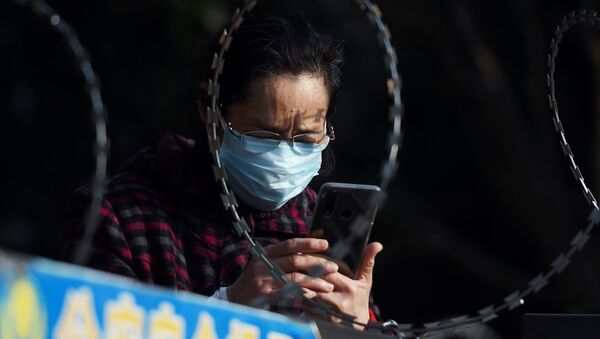As countries continue to report their first confirmed cases or additional verified infections of coronavirus, a number of netizens and outlets - whether knowingly or not - have been involved in recent campaigns based on misinformation and fearmongering.
"The public concern about coronavirus is being used as a vehicle to get people to transmit misinformation and disinformation," Carl Bergstrom, a biology professor at the University of Washington, told the AFP. According to the professor, a lot of the misinformation comes in the form of "people trying to sell snake oil products" which promise to cure or prevent one from contracting the coronavirus.
World Health Organization (WHO) Director-General Tedros Adhanom Ghebreyesus informed the outlet that the United Nations agency has been in contact with Google to “make sure people searching for information about the coronavirus see WHO information at the top of their search results.”
The WHO director-general also revealed that social media websites such as Twitter, TikTok and Facebook have made conscious efforts to prevent the spread of misinformation regarding the ongoing COVID-19 crisis.
“We recently implemented a policy to prohibit ads that refer to the coronavirus and create a sense of urgency, like implying a limited supply, or guaranteeing a cure or prevention. We also have policies for surfaces like Marketplace that prohibit similar behavior,” a Facebook spokesperson told Business Insider.
Additionally, Google-owned, video-sharing platform YouTube’s “harmful or dangerous content policy” explains that it does not allow “content which claims that harmful substances or treatments can have health benefits.”
However, being that most of these misinformation campaigns are viral in nature and drive traffic to both large platforms and the deceivers’ own websites, some individuals, such as Bergstrom, are skeptical of the platforms’ willingness to fully combat the issue.
"[A] Social media company claiming it's [an] active participant in the fight against misinformation is like [tobacco maker] Philip Morris saying they're [an] active participant in the fight against lung cancer," he told AFP.
NewsGuard, a company that rates the credibility of news and information websites, announced Wednesday that it had launched a “Coronavirus Misinformation Tracking Center” that would identify websites that have been posting false content amid the COVID-19 crisis.
The section includes NewsGuard’s custom Nutrition Labels for sites our human reviewers have identified as publishing materially false information about the Wuhan coronavirus (also known as COVID-19).
— NewsGuard (@NewsGuardRating) February 26, 2020
2/5
As of February 26, websites from the US, UK, France, Italy and Germany have been referenced by the tracking center, including InfoWars, PressTV and the website of Presidential Medal of Freedom recipient Rush Limbaugh.




